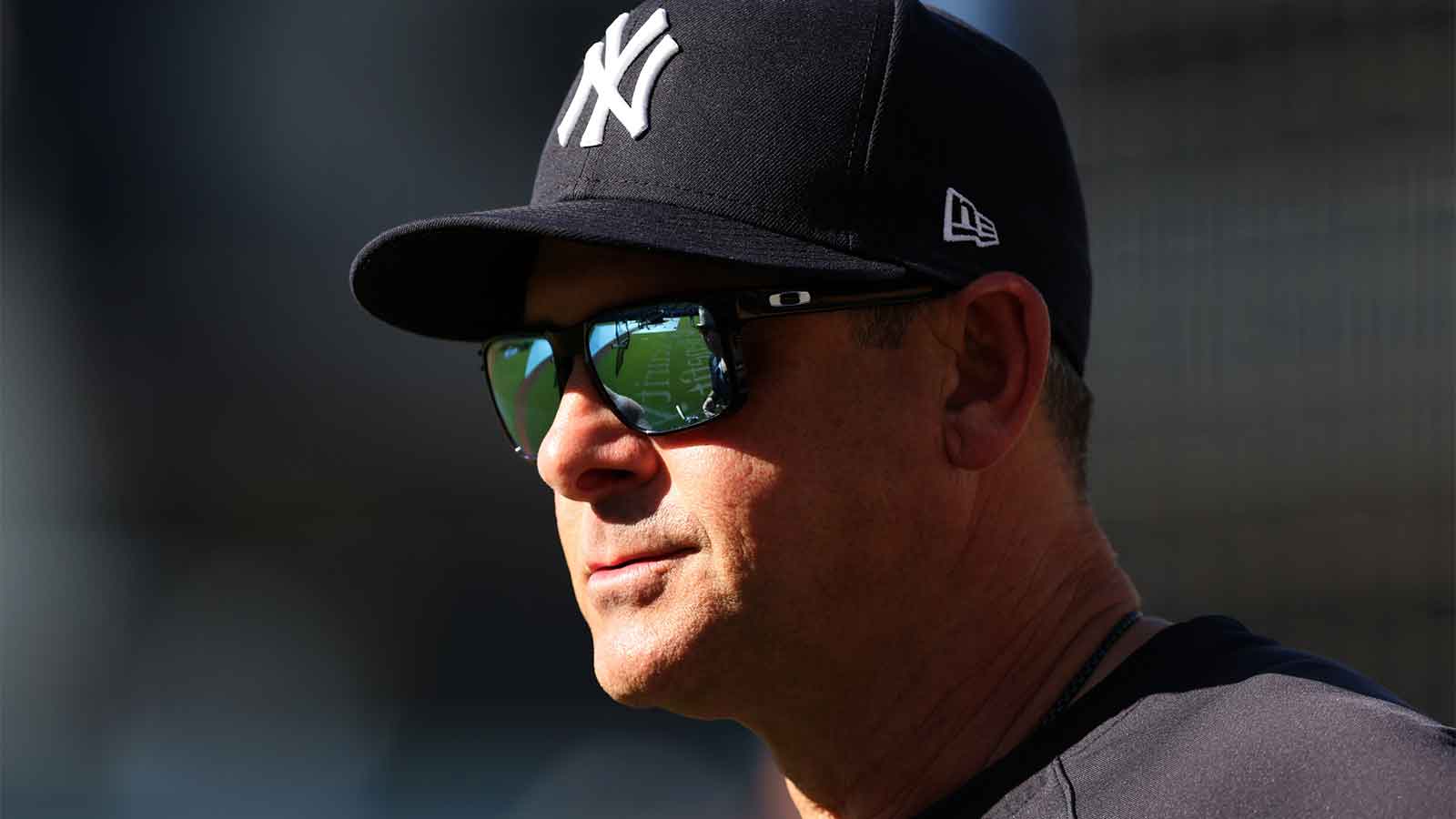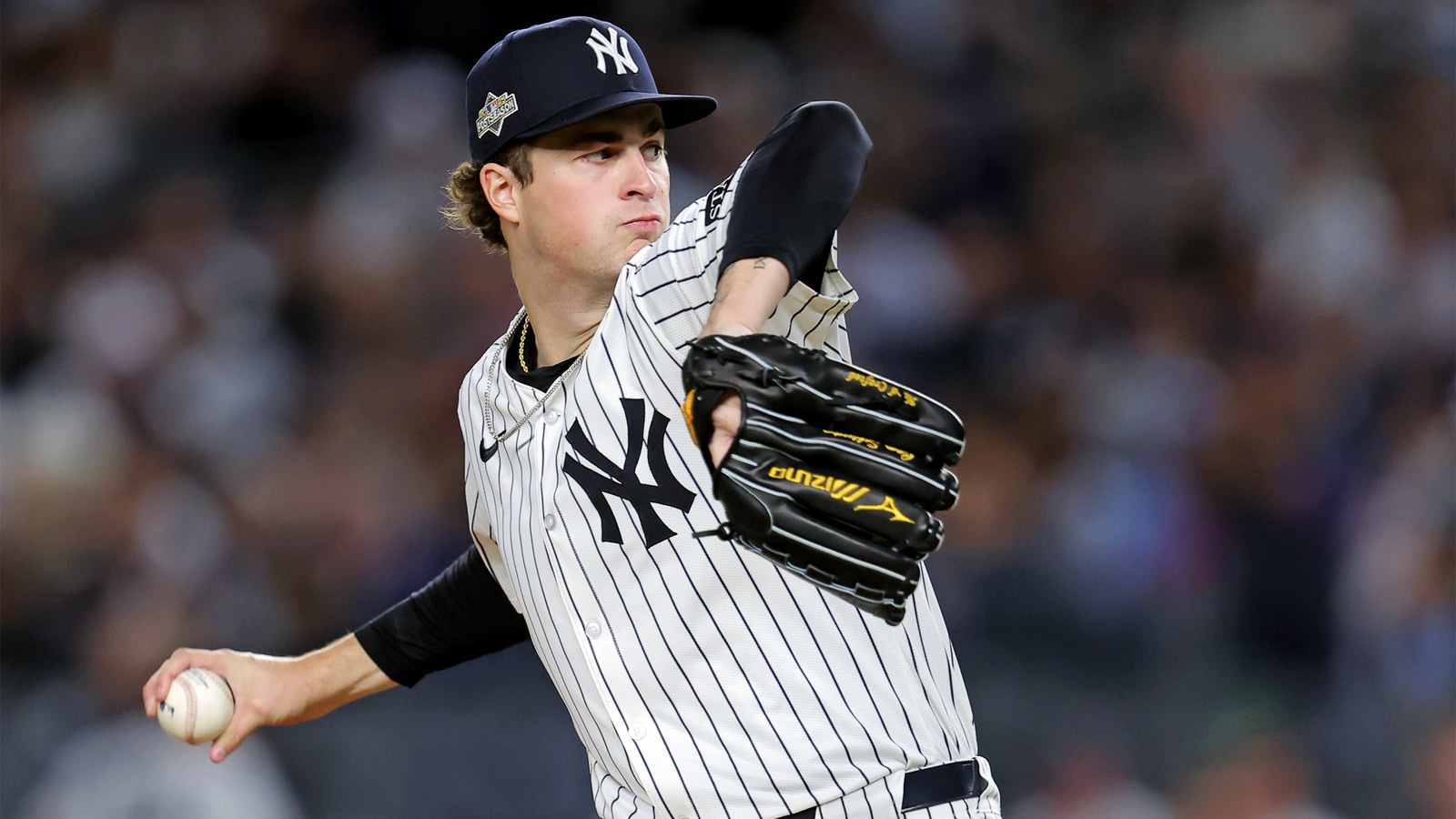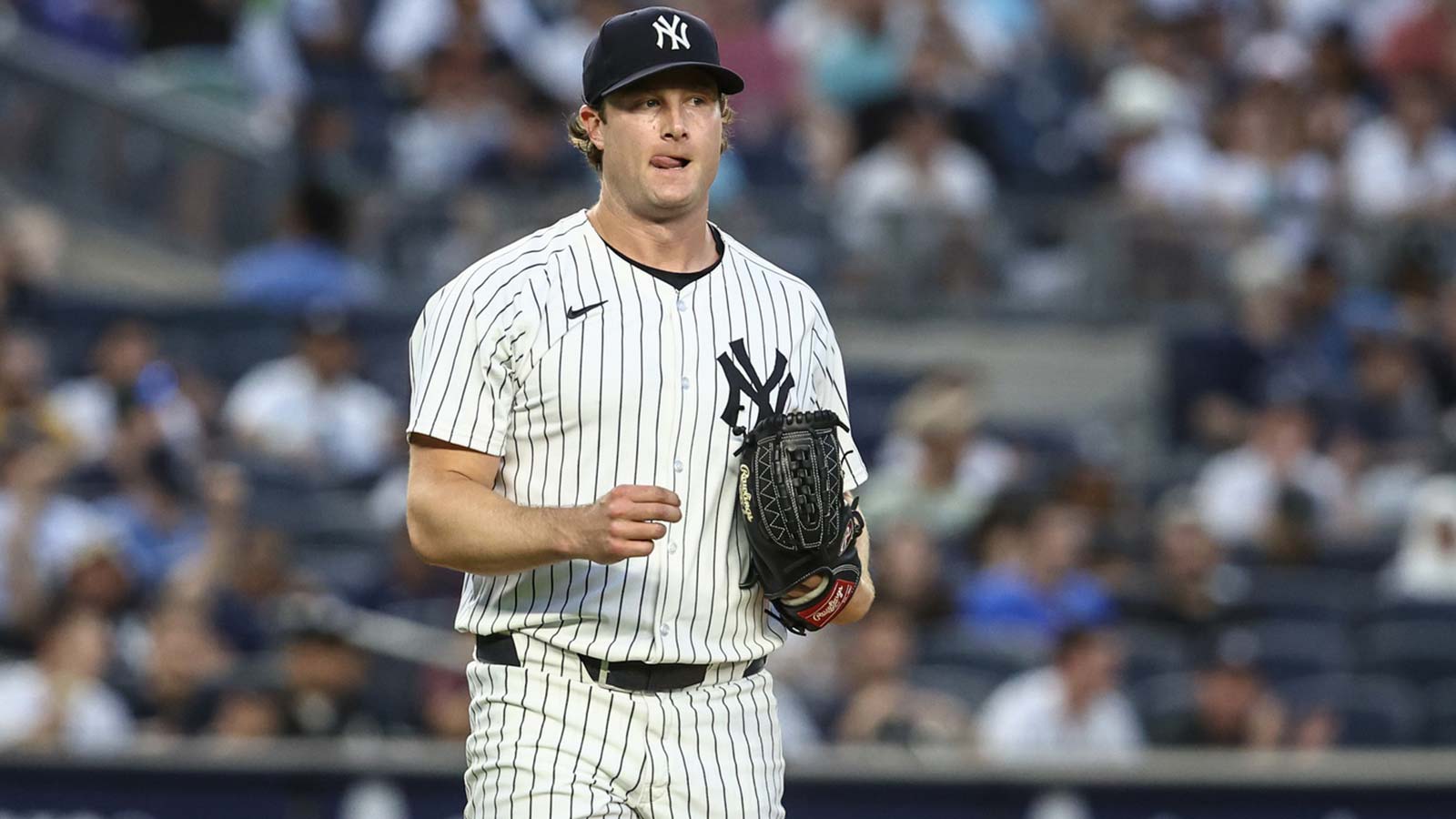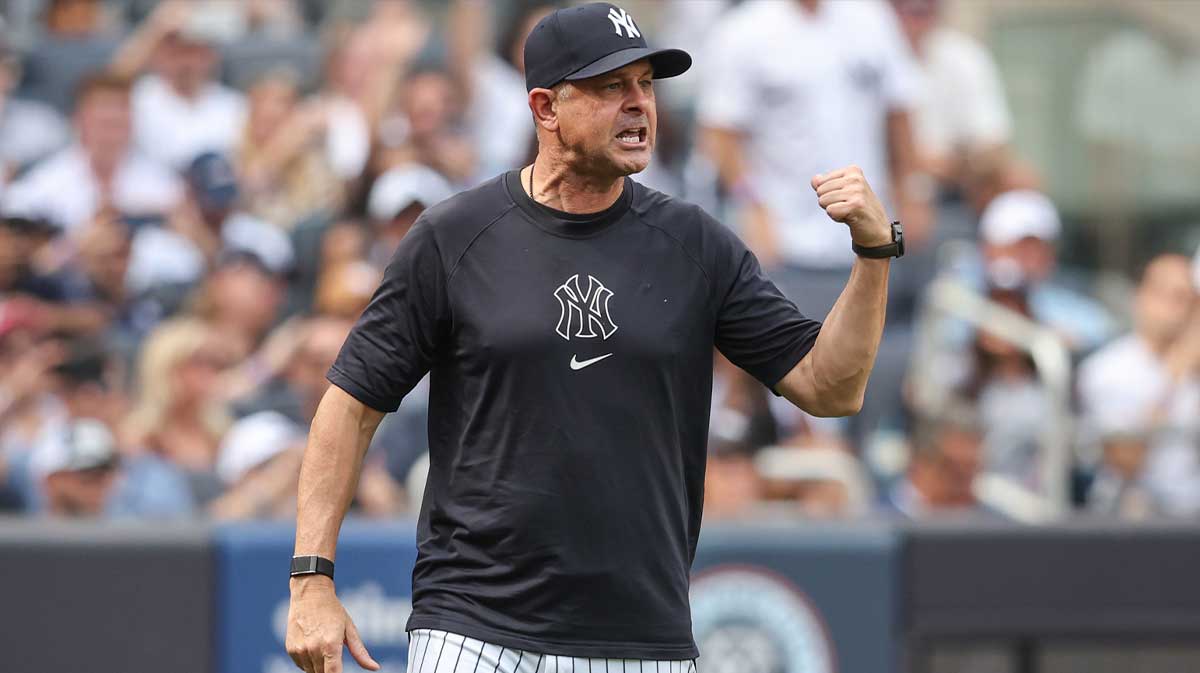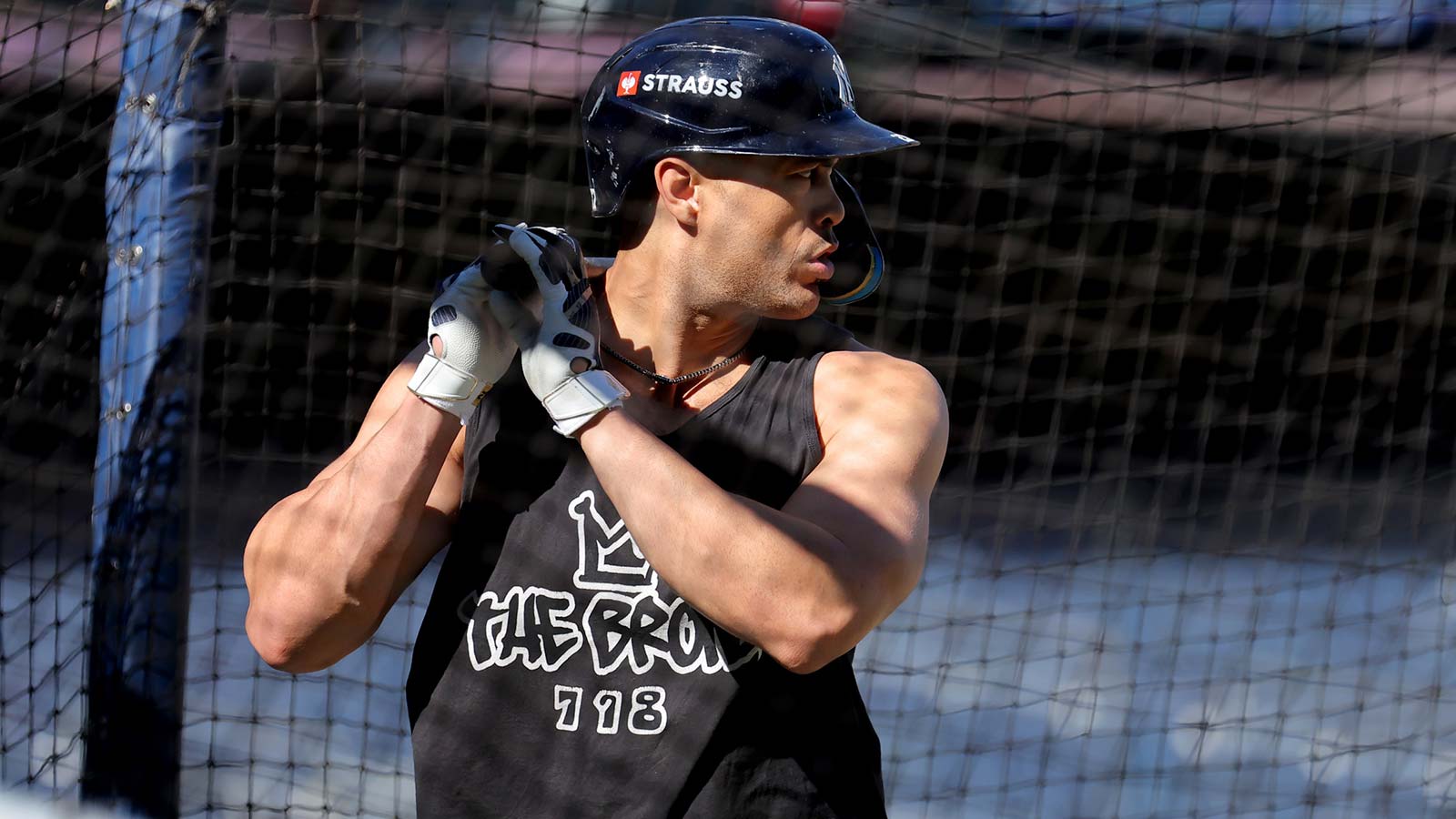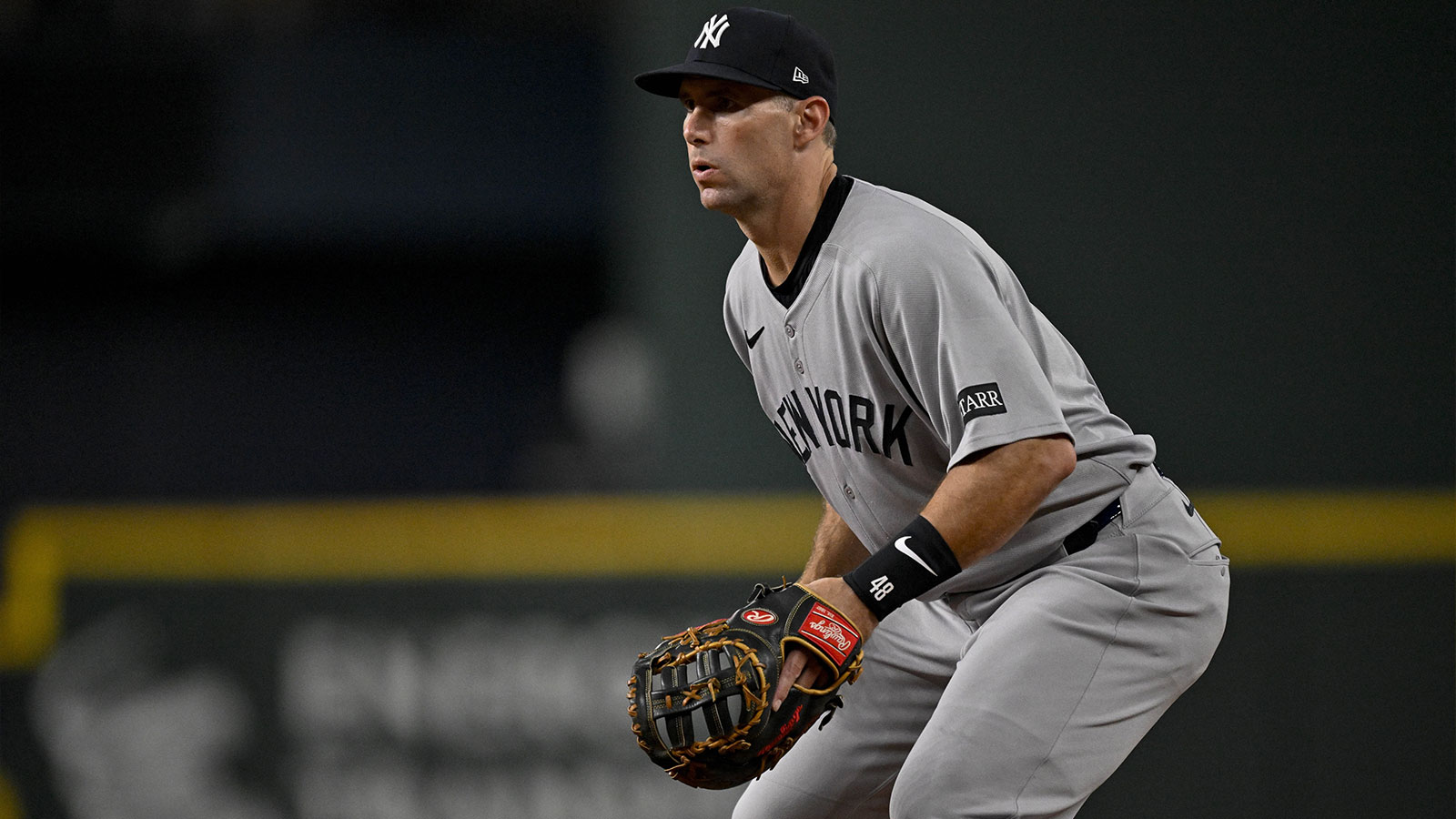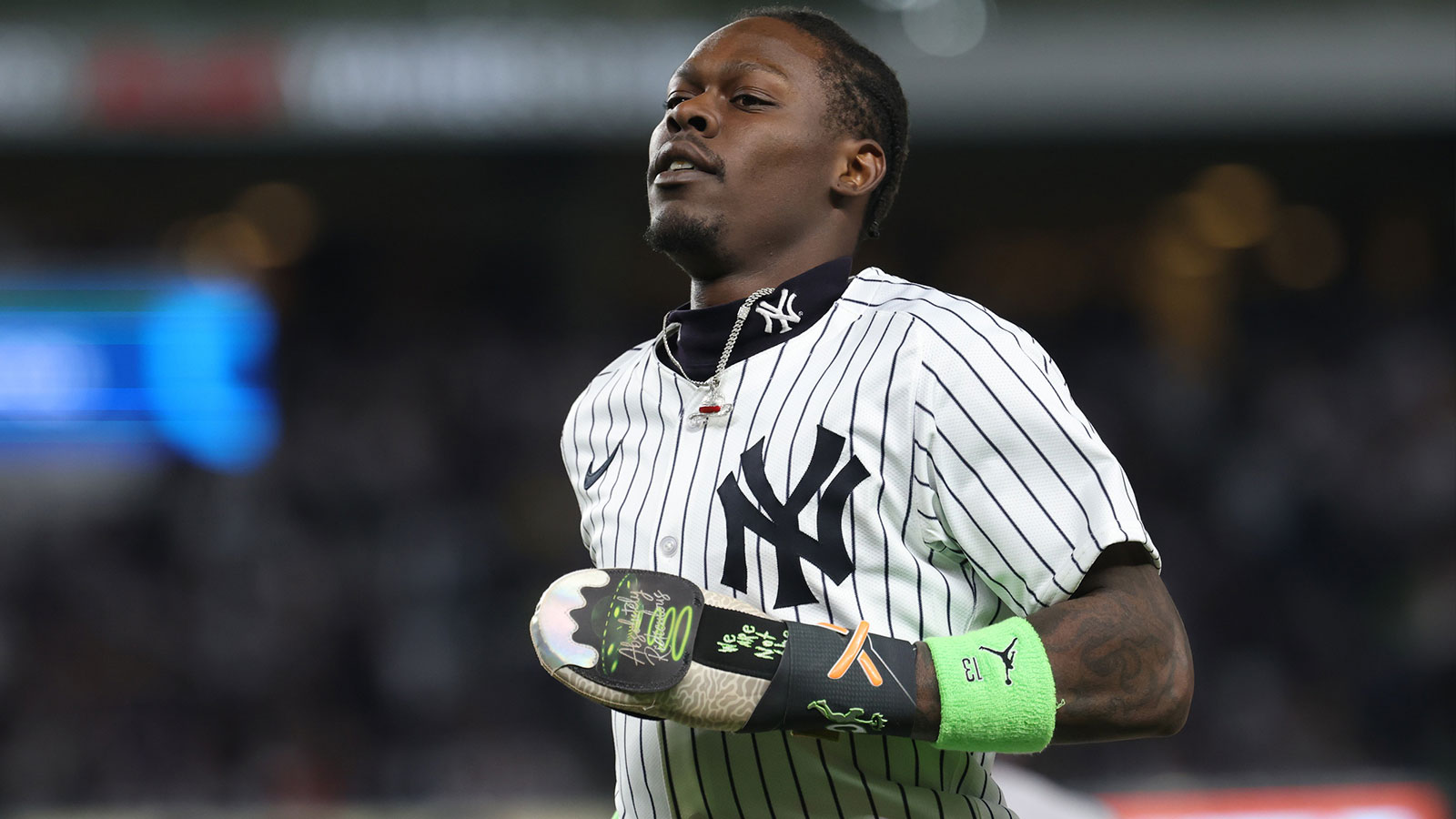Last season, Aaron Judge was making all the headlines. He hit a whopping 62 home runs, leading all the majors, meanwhile setting a New York Yankees franchise record. The reigning AL MVP is now making headlines for all the wrong reasons, though no real fault of his own. Aaron Judge, while playing the Toronto Blue Jays on Monday, with a few quick glances over at the visitors' dugout during an at-bat, set the sports world ablaze.
The hypersensitive MLB community was quick to believe Judge was somehow cheating. It's asinine. Moreover, Blue Jays pitcher Jay Jackson admitted to tipping his pitches in the game.
Maybe this would have been nothing if not for announcers Dan Shulman and Buck Martinez calling attention to Judge's sudden side glancing. They were quick to question the intention of Judge, asking what he could possibly be looking at. Granted, they didn't outright say Judge was cheating, but nevertheless, anyone watching the broadcast could read between the lines. Plus, this is the MLB, where cheating is always assumed over success through the lens of historical context. Although it certainly didn't help matters when Judge hit a 462-foot moonshot shortly after the announcers' comments.
The MLB, from its fans to its teams, is an exposed nerve since the Houston Astros scandal that took place during the 2017 and 2018 seasons. The Aaron Judge eye-glance during the Blue Jays game is just a remnant of that. Any hint of suspicious activity where a team or player could get leverage is going to get called out, whether justified or not. That could be because, historically, MLB teams have gone to great, unusual lengths to get ahead of their competition. Remember, the Astros were using trash cans to relay to their hitters what pitches were coming from opposing teams' pitchers during games.
What, oh, what could an Aaron Judge side-eye do?
Aaron Judge hits a home run as the Blue Jays broadcasters wonder why he keeps glancing toward the dugout pic.twitter.com/ZrOY7grbYV
— Jomboy Media (@JomboyMedia) May 16, 2023
Honestly, this paranoia came well before the Astros scandal, as the MLB has been dealing with cheating for a century. Going back to 1919, the Chicago Black Sox had eight players accused of throwing the World Series against the Cincinnati Reds in exchange for money from a gambling syndicate. The scandal changed the sport forever. Eight players were banned for life from organized baseball and left a black eye on the sport that resides to this day.
There's a whole inventory of other scandals that have also rocked the foundation of the MLB. For starters, the Pete Rose betting scandal, which caused the all-time hits leader to be completely banned from the Hall of Fame, even though he admitted to never betting against his team. There's the George Brett pine tar incident in which New York Yankees manager Billy Martin accused Brett of having too much pine tar on his bat after hitting a home run in the ninth inning to give his Kansas City Royals a 5-4 lead. The infamous 409-page Mitchell Report perhaps changed the entire landscape of the sport as we know it. The report allegedly named 89 players who were using performance-enhancing drugs, most of which defined an entire era of baseball.
In its long history, the MLB has gravitated from gullibility to skepticism. Everything is questioned now. But it seems the league is still dealing with some gullibility. Sign-stealing, for instance — is it art or an act of sin? Because throughout the league's history, it's been considered both. If Aaron Judge was indeed stealing signs somehow, albeit in a non-Astro way, is it automatically the latter?
Going back to the Astros — the team was using modern technology to steal signs, i.e., cameras in the centerfield seats to film the opposing team's catcher's signs. My question is: how did no one think of it sooner? But why is sign-stealing considered cheating when teams are giving their opponents the opportunity to do so? Isn't the point of having signs, after all, to keep the opponent from knowing what you're doing? If teams are leaving themselves vulnerable to these situations by not changing their signs, isn't it really on them to fix it? Shouldn't they be more creative in not allowing their opponents to gain the upper hand?
The lengths the Astros took are unprecedented, without question, and should outright be punished. The problem is that the league should have been ahead of it sooner. That's where the gullibility comes from, why the league has been behind the 8-ball for so long, and why they're overly paranoid now. Now, they're playing catch-up, hence the Aaron Judge skepticism.
Should the MLB crack down on cheating? Of course! The issue is that the league shouldn't have been so gullible to begin with thinking that their players, who are overly competitive, multi-million-dollar athletes, wouldn't seek the upper hand.
What happened between Aaron Judge and the Blue Jays on Monday further illustrates the extreme paranoia around the league. Frankly, it's all too late attempts at cleaning it up. In a league that is full of unwritten rules, maybe the league should better define what cheating is and isn't. If Judge was indeed stealing signs, at least by that method implied, that's not cheating. That's good old-fashioned baseball.









